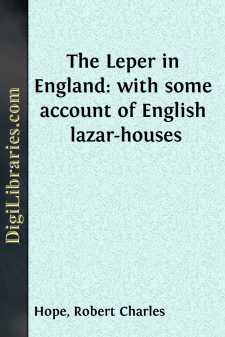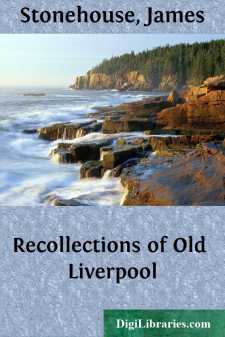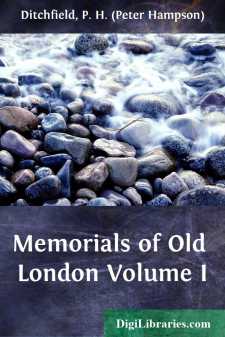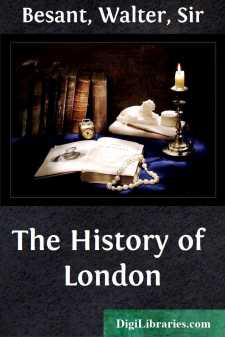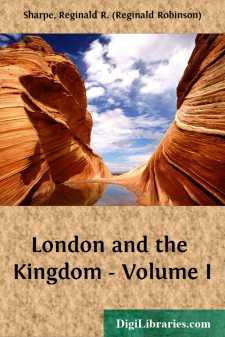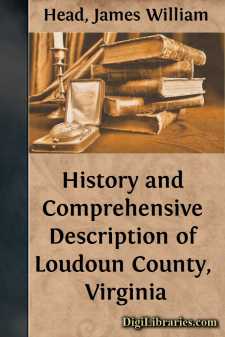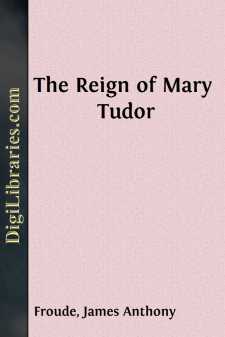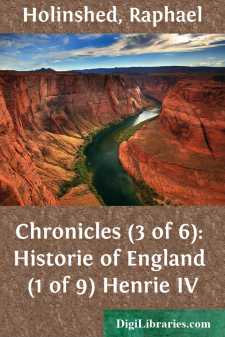History
- Africa 30
- Americas (North Central South West Indies) 50
- Ancient 68
- Asia 58
- Australia & New Zealand 8
- Canada 41
- Caribbean & West Indies 1
- Civilization 20
- Eastern Europe 12
- Europe
- Expeditions & Discoveries 60
- General 77
- Historical Geography 1
- Jewish 9
- Latin America 3
- Medieval 8
- Middle East 13
- Military 248
- Revolutionary 8
- Study & Teaching 5
- United States 353
- Western Europe 56
- World 13
Europe Books
Sort by:
There is perhaps no subject of greater interest, nor one which awakens more sympathy, than that of the Leper; it affords a most curious, though painful topic of enquiry, particularly in the present day, when so much has been said and written, as to the probability and possibility of the loathsome scourge again obtaining a hold in this, our own country. Much confusion and ignorance exists, as to what...
more...
by:
James Stonehouse
CHAPTER I. I was born in Liverpool, on the 4th of June in 1769 or ’70. I am consequently about ninety-three years old. My friends say I am a wonderful old man. I believe I am. I have always enjoyed such excellent health, that I do not know what the sensation is of a medical man putting his finger on my wrist. I have eaten and drunk in moderation, slept little, risen early, and kept a clear...
more...
I.—Celtic London When we see the words "Celtic London" at the head of a chapter we naturally feel inclined to ask, "Was there such a place? Was there any Celtic London?" Although it is almost impossible to answer such a question by either "yes" or "no," it may be worth while to examine it briefly before passing on to the domains of authentic history. In the first...
more...
(M1) The proclamation announcing James VI of Scotland to be "by law, by lineal succession and undoubted right," heir to the throne of England, now that Elizabeth was dead, illustrates again the ancient right of the citizens of London to a voice in electing a successor to the crown. The document not only acknowledges the assistance received by the lords of the realm from the lord mayor, aldermen...
more...
by:
Walter Besant
1. THE FOUNDATION OF LONDON. PART I. 'In the year 1108 B.C., Brutus, a descendant of Æneas, who was the son of Venus, came to England with his companions, after the taking of Troy, and founded the City of Troynovant, which is now called London. After a thousand years, during which the City grew and flourished exceedingly, one Lud became its king. He built walls and towers, and, among other...
more...
PREFACE. Of the numerous works that have been written on London, by which I mean more especially the City of London, few have been devoted to an adequate, if indeed any, consideration of its political importance in the history of the Kingdom. The history of the City is so many-sided that writers have to be content with the study of some particular phase or some special epoch. Thus we have those who...
more...
Introduction. know not when I first planned this work, so inextricably is the idea interwoven with a fading recollection of my earliest aims and ambitions. However, had I not been resolutely determined to conclude it at any cost—mental, physical, or pecuniary—the difficulties that I have experienced at every stage might have led to its early abandonment. The greatest difficulty lay in procuring...
more...
CHAPTER I Triumphant returning at night with the spoil,Like Bachanals, shouting and gay:How sweet with a bottle and song to refresh,And lose the fatigues of the day.With sport, wit, and wine, fickle fortune defy,Dull 'wisdom all happiness sours;Since Life is no more than a passage at best,Let's strew the way over with flowers. "THEY order these things better in London," replied the...
more...
INTRODUCTION. The memory of no English sovereign has been so execrated as that of Mary Tudor. For generations after her death her name, with its horrid epithet clinging round it like the shirt of Nessus, was a bugbear in thousands of Protestant homes. It is true that nearly 300 persons were burnt at the stake in her short reign. But she herself was more inclined to mercy than almost any of her...
more...
When king Richard had resigned (as before is specified) the scepter and crowne; Henrie Plantagenet borne at Bullingbroke in the countie of Lincolne, duke of Lancaster and Hereford, earle of Derbie, Leicester, and Lincolne, sonne to Iohn of Gant duke of Lancaster, with generall consent both of the lords & commons, was published, proclamed, and declared king of England and of France, and lord of...
more...


